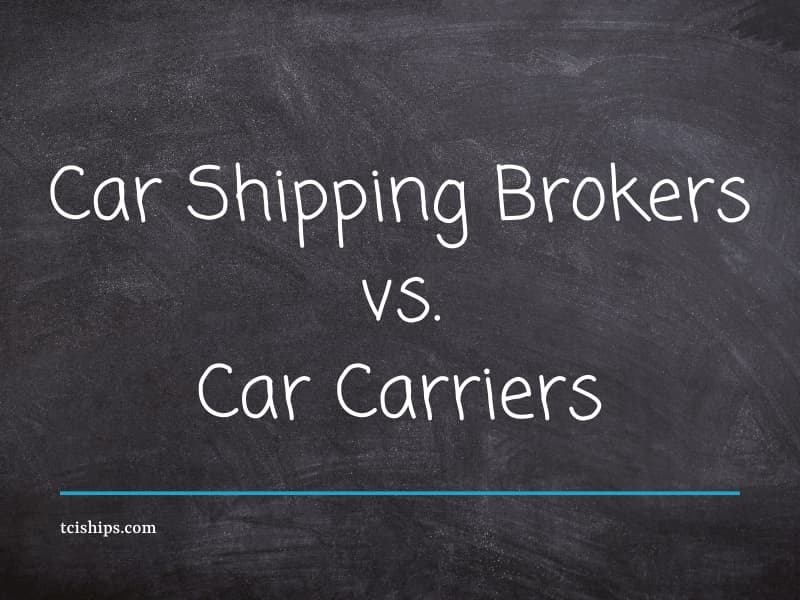Glossary of Terms for the Auto Transport Industry
24.07.2019
Auto Transport – What Are The Most Commonly Used Terms You Need To Know?

Shipping your car to a new city involves dealing with some paperwork and inevitably, dealing with some terms and slang. That’s why we want to help you understand the most commonly used terms in the auto transport industry. To help you learn more about the specific language used in our industry, we have prepared a glossary of terms listed in alphabetical order.
Advanced Charges: Those are charges for services performed by someone other than the carrier. A professional, or other third party may perform these services at your request. The auto transport company pays for these services and then adds the additional charges to your bill of lading.
Agent: A local shipping company that is authorized to act on behalf of a larger, national company.
Auxiliary Service (Shuttle): An Auxiliary Service is considered in case the assigned car carrier is unable to make a normal pickup/delivery because there are physical constraints, and a smaller vehicle is needed for the job to be completed. This may be required if the road or driveway is too narrow, or there is a bridge that is unable to support the weight of the tractor-trailer.
Bill of Lading: Your Bill of Lading is the actual receipt for your vehicle shipment and the agreement for its transportation. NOTE: It is your responsibility to understand the bill of lading before you sign it. If you do not agree with some clause that is on the bill of lading, do not sign it until you are satisfied that it is correct. Do not lose or misplace your copy of bill of lading.
Boat Transport: Most auto transport companies also arrange the transport of boats on specialized carriers. Bonded Auto transport companies are required by law to have an insurance policy that covers damages caused to the cars as a result of the driver’s mistake. An auto shipping company that is bonded have policies to protect consumers against such damages. The best auto brokers are bonded.
Broker: This is a person who, for compensation, arranges the transportation of your vehicle by an authorized car carrier. A broker may not provide the actual truck transportation. They do not assume responsibility for the cargo or take possession of the cargo, while it is being shipped to you.

Car Shipping Brokers vs. Car Carriers: What is the Difference?
When you are looking for a car shipping service, as usual, just as with other service providers, you start looking for one online. Search engines will display different types of car shipping companies - brokers, carriers, and lead generators.
Car Shipping Calculator: A car shipping calculator is an easy, online calculator that allows the customer to calculate their potential shipping costs. It is recommended to contact the company directly after receiving a shipping quote online in order to confirm the price and service requested.
Car Hauling: Generally, whenever a client needs to ship or transport a vehicle more than a 450 miles, a car hauling company is used to complete the job. When you move interstate or cross-country, you will need to haul your car separately from your household items.
Car Transport (or Car Shipping): This term is used to describe the physical process of moving or shipping a vehicle as freight. Car Carrier: A car carrier is a tractor-trailer that transports multiple vehicles at once to end clients, dealerships or rental companies.
Carrier's Liability for Loss or Damage: This is the liability a carrier assumes for your transporting your car. There are different liability options available, and so be sure to ask the carrier's. Carrier's Liability for Loss or Damage should not be confused with "insurance." Claim (or a Damage claim): This is shipper's statement of loss or damage to their vehicle while it was in the care of the carrier or its agent. Such a statement is usually made on a "Claim Form."
Co-loading: This is the process of loading more than one car on a single transporter. Co-loading is commonly used because it is the most cost-efficient method to ship a car.
Collect on Delivery (COD): Shipments where customer pays shipment charges at the time of delivery are called COD shipments. For COD shipments, payment is usually required in cash, or by money order, or cashier's check. Personal checks are not generally accepted as payment method on COD shipments.
Cut-off Time: This term denotes the absolute latest possible time a shipment can be delivered to its final destination.
Dealership Auto Transport: Dealership auto transport includes specialized shipping services tailored to accommodate dealerships’ requirements regarding time schedule and type of shipping method.
Delivery Network: This term stands for the trucks, ships, and railroads of the automobile transport system.
Diversion: This term describes the event of changing the route for a shipment while in transit.
Door-To-Door Auto Shipping: Door-To-Door Auto Shipping is a type of transport service when your vehicle is picked up from your residence or business address and delivered exactly to your new address.
Department of Transportation (DOT/USDOT): The Department of Transportation oversees federal highway, air, railroad, and maritime and other transportation administration functions.
Enclosed Car Hauler: These are the safest of all the carriers because the cars are protected from the elements. Keep in mind there are soft and hard sided enclosed carriers.
En Route: The vehicle has left the pickup address and is on the way to the delivery address.
FMCSA: Federal Motor Carrier Safety Administration; is a governmental entity which assists in regulating laws, and it provides information for the States about new statutes and needs. It also offers a public database of information that details insurance and licensing information for automobile logistics service providers.
Motorcycle Shipping: specialized enclosed trailers for safe motorcycle transport.
New/Finished Vehicle Logistics: used to describe management, planning, and shipping services for automobile transport for manufacturers and others in the auto industry.
Open Carrier: Can be a trailer that holds a single car or up to 9 vehicles for transport that is in the open air and is the cheapest method of transport.
P.O.D.: Proof of Delivery; shows the receipt of auto shipment.
Single Vehicle Shipping: A term used to denote the delivery of a single automobile from one destination to another.
Terminal-to-Terminal: used by high-volume auto transport companies and can be a cheaper way to transport your vehicle. A terminal is a regional storage facility. Oftentimes, vehicles are stored in a towing company's secure lot, which is usually located in a large metropolitan area.
Tracking: Following an auto shipment throughout its delivery process.
Vehicle Logistics Company: Specialized service provider with the capacity to plan and manage auto transport services. Vehicle Shipping: The transport or delivery of a vehicle.
Vehicle Transport: The process of physically shipping a car.

